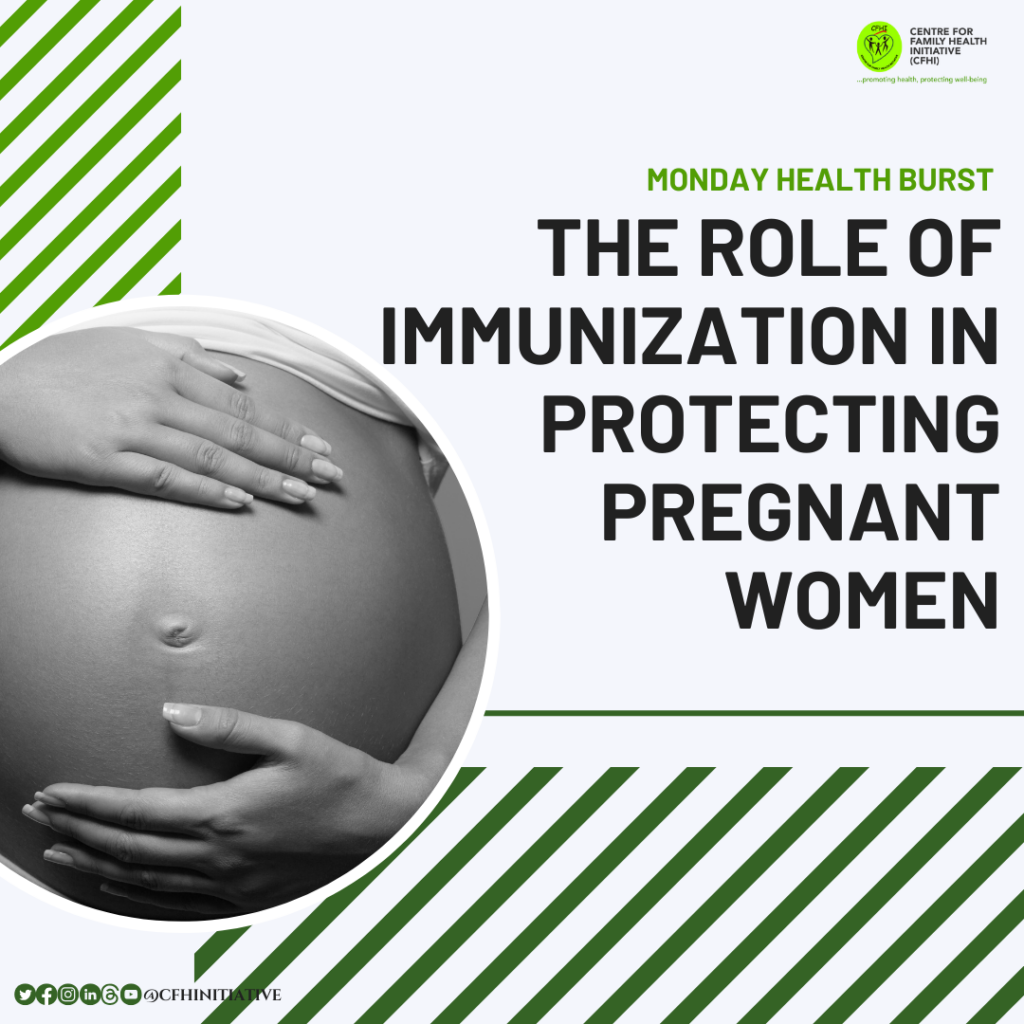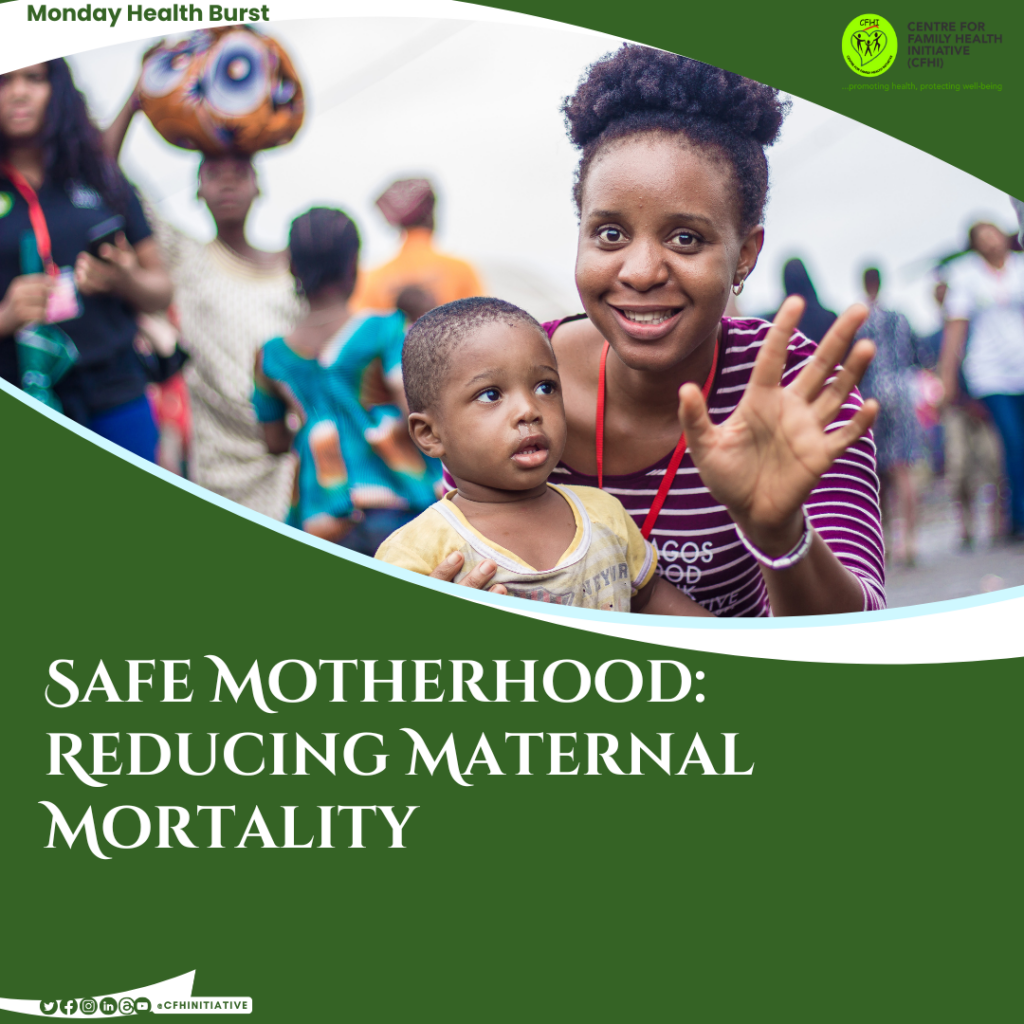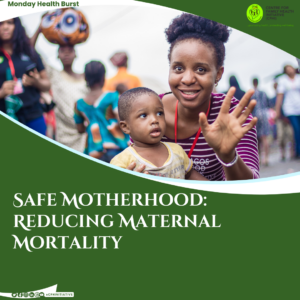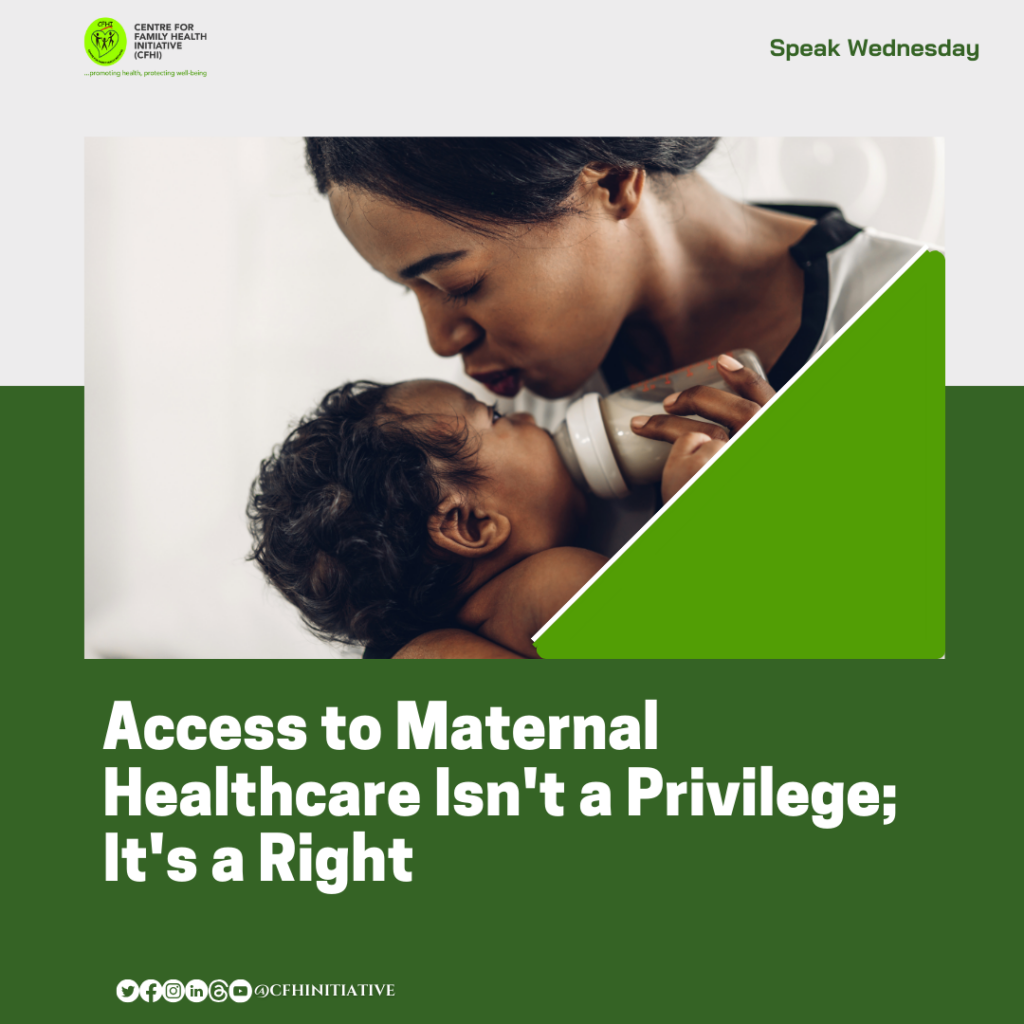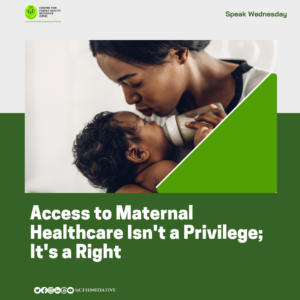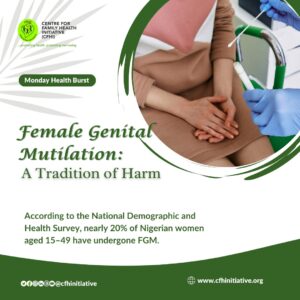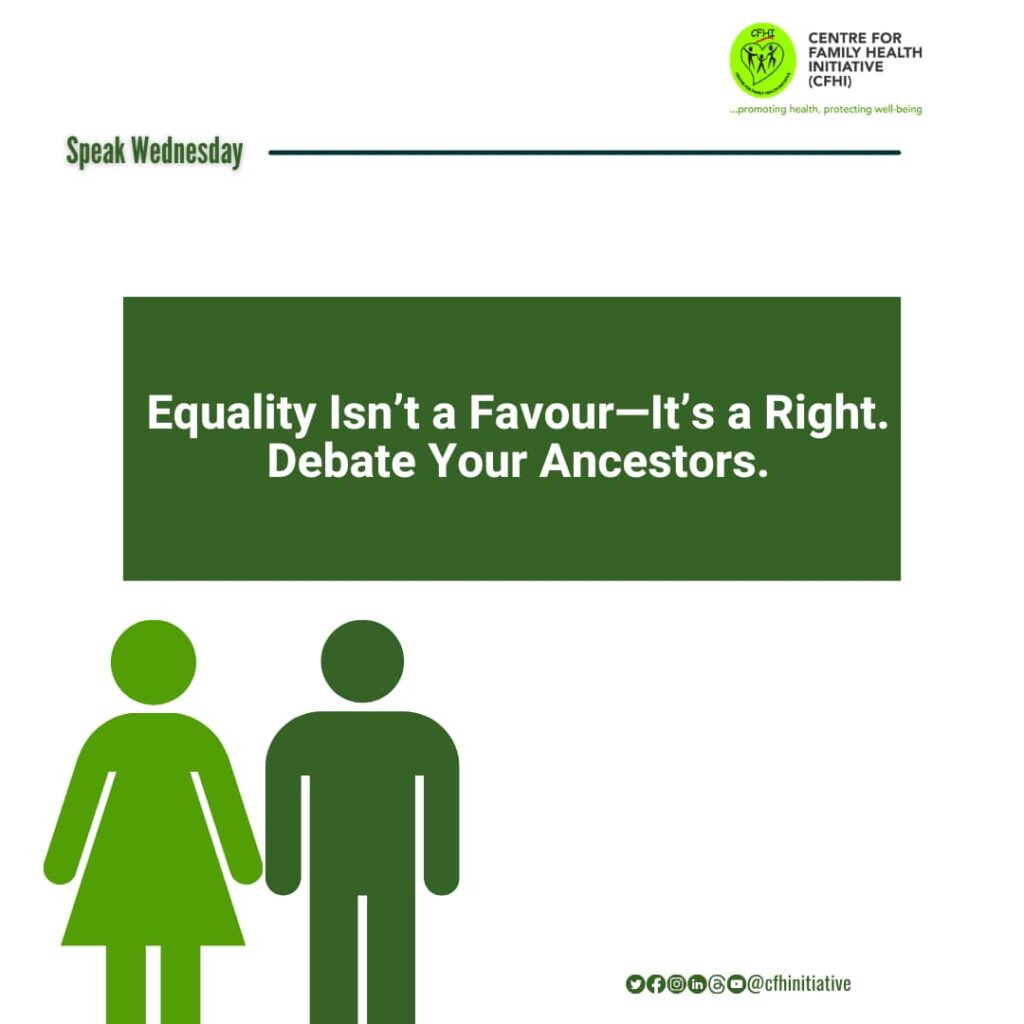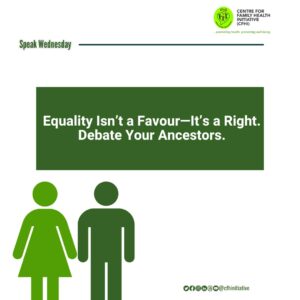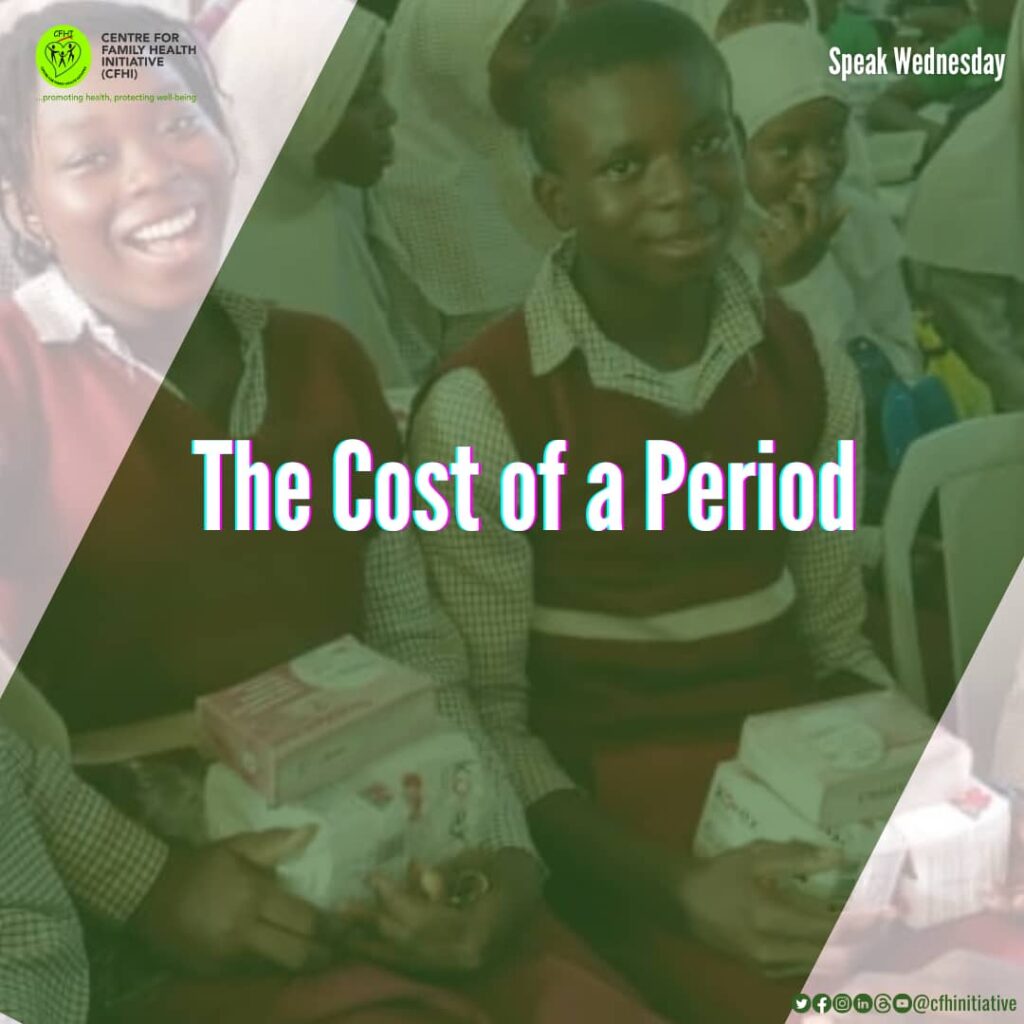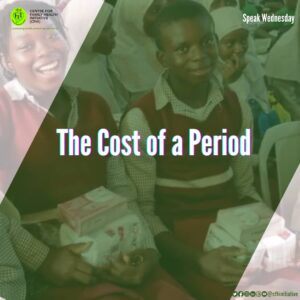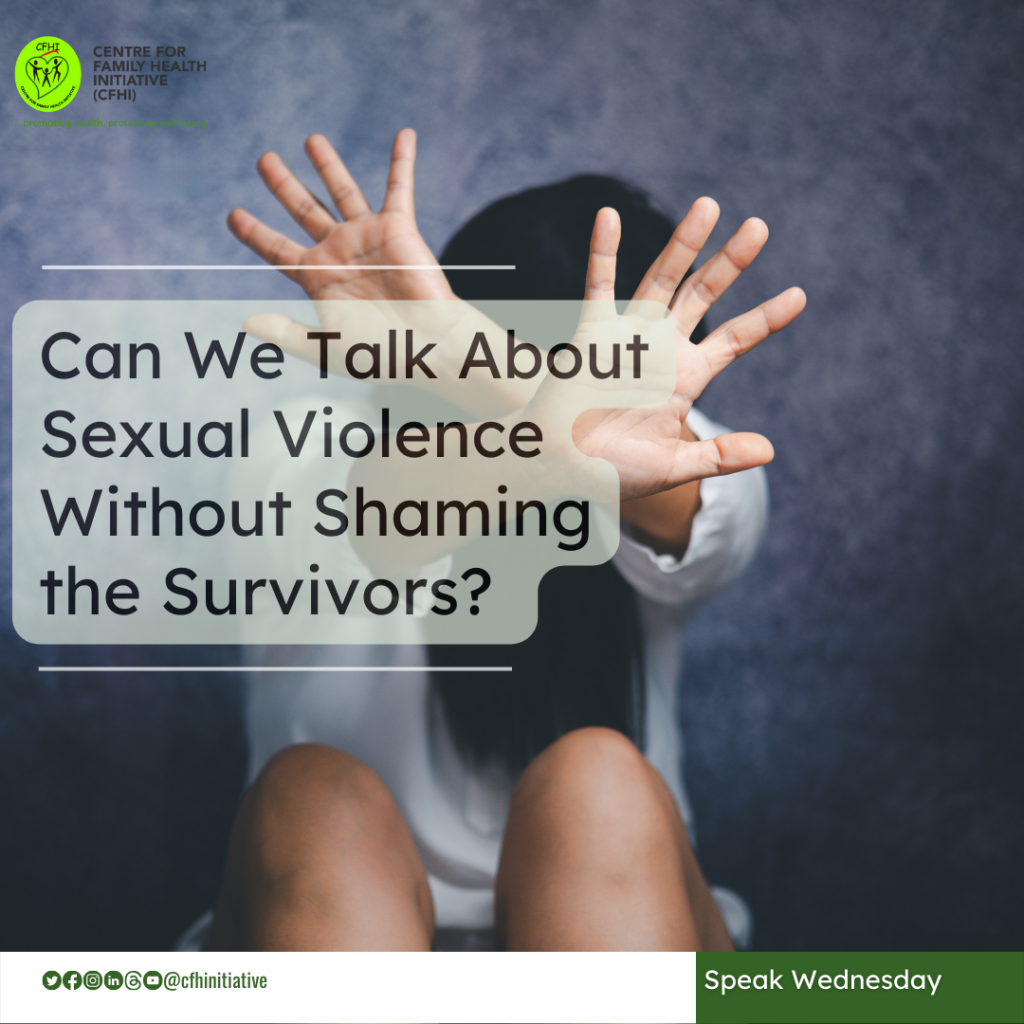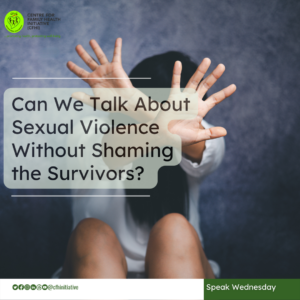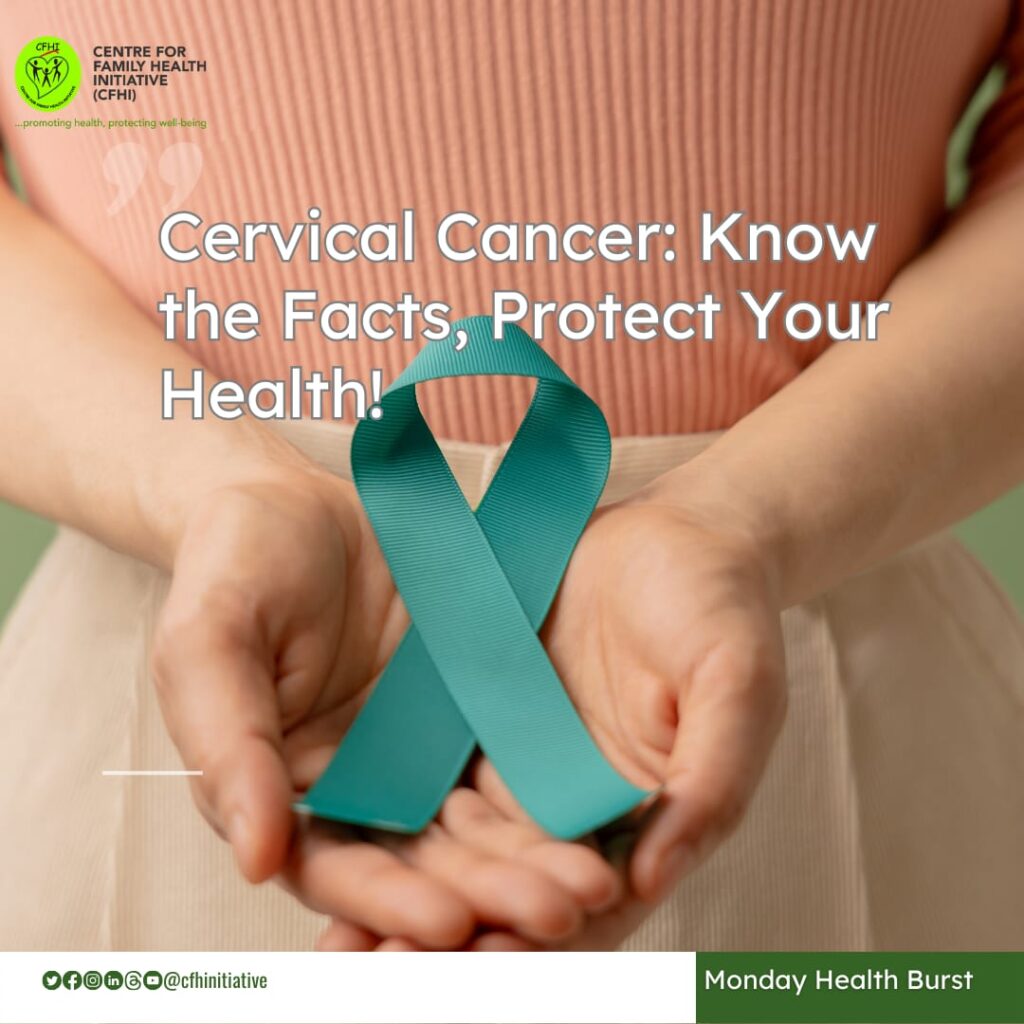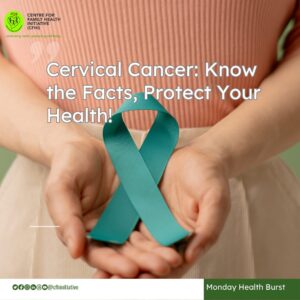MONDAY HEALTH BURST ON THE ROLE OF IMMUNIZATION IN PROTECTING PREGNANT WOMEN
Immunization plays a critical role in safeguarding the health of pregnant women and their unborn babies. During pregnancy, physiological changes in a woman’s immune system make her more vulnerable to certain infections, which can result in serious health complications for both mother and child. Vaccines provide a proven, effective line of defense by preventing these diseases and promoting safer pregnancies and deliveries1.
Beyond protecting the mother, immunization offers a crucial benefit to the unborn baby. Antibodies produced by the mother in response to vaccines are passed on to the fetus, offering early-life protection until the baby is old enough to receive their own vaccinations. This is especially important for diseases like tetanus, influenza, and pertussis (whooping cough), which can be life-threatening for newborns2.
As part of its commitment to improving maternal and child health, the Centre for Family Health Initiative (CFHI) has consistently championed immunization through community-based efforts. In 2022, CFHI marked World Immunization Week by partnering with the Idu Primary Health Care facility to provide vaccines to over 30 children in the Angwan Shahu community of Karimo, Abuja. This outreach was a direct response to barriers such as overcrowded health centers and limited transportation, which often prevent caregivers from accessing routine immunization services for their children.
Building on that momentum, in 2023 CFHI collaborated with the Primary Healthcare Center in Angwan Guragu, Karonmajiji. This event integrated community sensitization with the delivery of essential vaccines and reached over 50 individuals, including children and adults. These initiatives not only increased vaccine coverage but also reinforced public trust in immunization as a safe and necessary part of preventive healthcare.
Health stakeholders must continue to strengthen immunization systems, expand awareness, and eliminate barriers to access. Empowering women with accurate information and accessible services ensures they can make informed decisions to protect themselves and their children—laying the foundation for healthier families and communities.
Monday Health Burst is an initiative of Centre for Family Health Initiative (CFHI) to tackle issues of basic health concerns. Join us every Monday for more health-related articles on all our social media platforms.
References
- Centers for Disease Control and Prevention. (2022). Pregnancy and Vaccination. Retrieved from https://www.cdc.gov/vaccines/pregnancy
- World Health Organization. (2020). Vaccines in Pregnancy: Protecting Mother and Child. Retrieved from https://www.who.int/news-room/fact-sheets/detail/vaccines-in-pregnancy
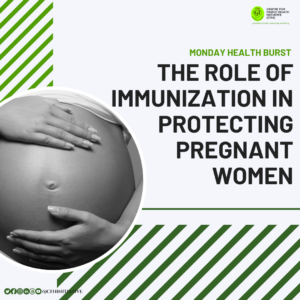
MONDAY HEALTH BURST ON THE ROLE OF IMMUNIZATION IN PROTECTING PREGNANT WOMEN Read More »

